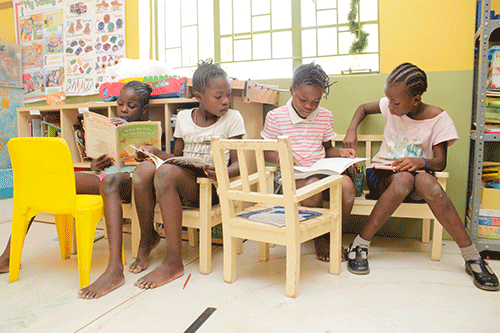Although research has demonstrated that investing in early childhood development centres (ECD) yields both immediate and long-term benefits for the child, the provision of integrated ECD services is limited in Namibia, especially in rural areas.
As it stands, only 95 659 children under six years of age are enrolled in ECDs, leaving the majority out without schooling.
These figures were revealed by education deputy executive director Edda Bohn during the recent education conference.
In fact, Bohn emphasised the need for new census data, as the available ones are outdated.
According to the National Population and Housing Census of 2011, only 31% of children between the ages of zero to four years old were benefitting from some ECD services.
Where services exist, they are usually centre-based and run primarily by the community or private individuals with little or no government funding.
Unfortunately, Bohn indicated these centres also have weak linkages with education, health and nutrition and child protection programmes.
Sadly, Bohn revealed about 87% of children with disabilities between 0-4 have never attended an ECD programme.
ECDs are a vital component in the education of children, offering them a much-needed boost to excel in school.
She announced the ministry has built additional classrooms, and they have now more than 50 000 learners from ECDs in pre-primary school.
“There is a notion to improve ECD provision to give it to education to impart knowledge and skills. We know from the physiology and biology side that the child’s brain develops the most and fastest during the 1 000 days – that is from conception to eight years. So the foundation needs to be laid and the critical input of care, support and nutrition are in those first 1 000 days. Education plays a role in building the capacity of parents and also caregivers to give quality service,” she stated.
To improve ECD services, she said the ministry is hard at work in training caregivers to offer proper care to children.
“We are engaged. We have a technical committee. We also created a concept paper for the transfer, focusing on six components from human resources, infrastructure and materials to administration.
However, she said, the ministry of education is pushed into a corner that it took over the pre-primary phase since 2008, but it still does not have 100% enrolment.
“The question on the table is how do you take on ECD while you hardly have half in pre-primary? It doesn’t mean the ministry of education has to build ECD centres and has to employ ECDs teachers – no. It’s for the ministry to engage on a strategic level with strategic partners to build the capacity of communities to establish quality ECD centres. We have to source funding for that. We need to know where these children are and why they are not in ECDs,” Bohn noted.
UNICEF Namibia, in partnership with the ministries of gender, education and health, provided technical and financial support to six centres in five regions.
The purpose is to pilot an integrated approach to ECD with a focus on promoting health and nutrition; childcare and protection; early identification of disabilities and special needs; stimulation and early learning; parental and community engagement as well as capacity development of the caregivers.
– anakale@nepc.com.na



